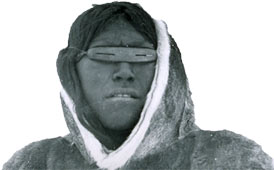 Couplets twain you offer here, of mettle base and blacker,
Couplets twain you offer here, of mettle base and blacker,
Telling of the fallen men and the interest of their knacker,
But the test for us if test there be is not besotted wrath —
We pity those that make so bold and tread another path.
That was how I responded to the victim’s intonation of a few choice lines from Kipling’s Tomlinson, indicting humanity as a result of an unfortunate episode in which hoodlums vandalized some property.
Of course, as always, there was talk of bad apples [my rejoinder was a mention of The Lucifer Effect (Zimbardo 2007)], moral bearings [Aristotle’s Nichomachean Ethics, anyone], and “Discipline and Punishment” [what is a criminal, we might well ask (Foucault, 1995)].
We often opine about others failure to exhibit any personal responsibility, but rarely see ourselves as complicit. How similar to the disturbing interests of laissez faire industrialists who wish to privatize return, but socialize loss…
Perhaps there is something more important than not doing that which we would not want done to ourselves. Garrison Keillor, who signs off with ““Be well, do good work, and keep in touch” daily has an idea: Do Good… Your mission, should you choose to accept it, is to figure out just what that might be…
________________________
TOMLINSON by Rudyard Kipling
Now Tomlinson gave up the ghost in his house in Berkeley Square,
And a Spirit came to his bedside and gripped him by the hair –
A Spirit gripped him by the hair and carried him far away,
Till he heard as the roar of a rain-fed ford the roar of the Milky Way:
Till he heard the roar of the Milky Way die down and drone and cease,
And they came to the Gate within the Wall where Peter holds the keys.
“Stand up, stand up now, Tomlinson, and answer loud and high
The good that ye did for the sake of men or ever ye came to die –
The good that ye did for the sake of men in little earth so lone!”
And the naked soul of Tomlinson grew white as a rain-washed bone.
“O I have a friend on earth,” he said, “that was my priest and guide,
And well would he answer all for me if he were by my side.”
“For that ye strove in neighbour-love it shall be written fair,
But now ye wait at Heaven’s Gate and not in Berkeley Square:
Though we called your friend from his bed this night, he could not speak for you,
For the race is run by one and one and never by two and two.”
Then Tomlinson looked up and down, and little gain was there,
For the naked stars grinned overhead, and he saw that his soul was bare:
The Wind that blows between the worlds, it cut him like a knife,
And Tomlinson took up his tale and spoke of his good in life.
“This I have read in a book,” he said, “and that was told to me,
And this I have thought that another man thought of a Prince in Muscovy.”
The good souls flocked like homing doves and bade him clear the path,
And Peter twirled the jangling keys in weariness and wrath.
“Ye have read, ye have heard, ye have thought,” he said, “and the tale is yet to run:
By the worth of the body that once ye had, give answer – what ha’ ye done?”
Then Tomlinson looked back and forth, and little good it bore,
For the Darkness stayed at his shoulder-blade and Heaven’s Gate before:
“O this I have felt, and this I have guessed, and this I have heard men say,
And this they wrote that another man wrote of a carl in Norroway.”
– “Ye have read, ye have felt, ye have guessed, good lack! Ye have hampered Heaven’s Gate;
There’s little room between the stars in idleness to prate!
O none may reach by hired speech of neighbour, priest, and kin
Through borrowed deed to God’s good meed that lies so fair within;
Get hence, get hence to the Lord of Wrong, for doom has yet to run,
And…the faith that ye share with Berkeley Square uphold you, Tomlinson!”
. . . . . . . . . . . . .
The Spirit gripped him by the hair, and sun by sun they fell
Till they came to the belt of Naughty Stars that rim the mouth of Hell:
The first are red with pride and wrath, the next are white with pain,
But the third are black with clinkered sin that cannot burn again:
They may hold their path, they may leave their path, with never a soul to mark,
They may burn or freeze, but they must not cease in the Scorn of the Outer Dark.
The Wind that blows between the worlds, it nipped him to the bone,
And he yearned to the flare of Hell-Gate there as the light of his own hearth-stone.
The Devil he sat behind the bars, where the desperate legions drew,
But he caught the hasting Tomlinson and would not let him through.
“Wot ye the price of good pit-coal that I must pay?” said he,
“That ye rank yoursel’ so fit for Hell and ask no leave of me?
I am all o’er-sib to Adam’s breed that ye should give me scorn,
For I strove with God for your First Father the day that he was born.
Sit down, sit down upon the slag, and answer loud and high
The harm that ye did to the Sons of Men or ever you came to die.”
And Tomlinson looked up and up, and saw against the night
The belly of a tortured star blood-red in Hell-Mouth light;
And Tomlinson looked down and down, and saw beneath his feet
The frontlet of a tortured star milk-white in Hell-Mouth heat.
“O I had a love on earth,” said he, “that kissed me to my fall,
And if ye would call my love to me I know she would answer all.”
– “All that ye did in love forbid it shall be written fair,
But now ye wait at Hell-Mouth Gate and not in Berkeley Square:
Though we whistled your love from her bed to-night, I trow she would not run,
For the sin ye do by two and two ye must pay for one by one!”
The Wind that blows between the worlds, it cut him like a knife,
And Tomlinson took up the tale and spoke of his sin in life:
“Once I ha’ laughed at the power of Love and twice at the grip of the Grave,
And thrice I ha’ patted my God on the head that men might call me brave.”
The Devil he blew on a brandered soul and set it aside to cool:
“Do ye think I would waste my good pit-coal on the hide of a brain-sick fool?
I see no worth in the hobnailed mirth or the jolthead jest ye did
That I should waken my gentlemen that are sleeping three on a grid.”
Then Tomlinson looked back and forth, and there was little grace,
For Hell-Gate filled the houseless Soul with the Fear of Naked Space.
“Nay, this I ha’ heard,” quo’ Tomlinson, “and this was noised abroad,
And this I ha’ got from a Belgian book on the word of a dead French lord.”
– “Ye ha’ heard, ye ha’ read, ye ha’ got, good lack! and the tale begins afresh –
Have ye sinned one sin for the pride o’ the eye or the sinful lust of the flesh?”
Then Tomlinson he gripped the bars and yammered, “Let me in –
For I mind that I borrowed my neighbour’s wife to sin the deadly sin.”
The Devil he grinned behind the bars, and banked the fires high:
“Did ye read of that sin in a book?” said he; and Tomlinson said, “Ay!”
The Devil he blew upon his nails, and the little devils ran,
And he said: “Go husk this whimpering thief that comes in the guise of a man:
Winnow him out ‘twixt star and star, and sieve his proper worth:
There’s sore decline in Adam’s line if this be spawn of earth.”
Empusa’s crew, so naked-new they may not face the fire,
But weep that they bin too small to sin to the height of their desire,
Over the coal they chased the Soul, and racked it all abroad,
As children rifle a caddis-case or the raven’s foolish hoard.
And back they came with the tattered Thing, as children after play,
And they said: “The soul that he got from God he has bartered clean away.
We have threshed a stook of print and book, and winnowed a chattering wind
And many a soul wherefrom he stole, but his we cannot find:
We have handled him, we have dandled him, we have seared him to the bone,
And sure if tooth and nail show truth he has no soul of his own.”
The Devil he bowed his head on his breast and rumbled deep and low:
“I’m all o’er-sib to Adam’s breed that I should bid him go.
Yet close we lie, and deep we lie, and if I gave him place,
My gentlemen that are so proud would flout me to my face;
They’d call my house a common stews and me a careless host,
And – I would not anger my gentlemen for the sake of a shiftless ghost.”
The Devil he looked at the mangled Soul that prayed to feel the flame,
And he thought of Holy Charity, but he thought of his own good name:
“Now ye could haste my coal to waste, and sit ye down to fry:
Did ye think of that theft for yourself?” said he; and Tomlinson said, “Ay!”
The Devil he blew an outward breath, for his heart was free from care: –
“Ye have scarce the soul of a louse,” he said, “but the roots of sin are there,
And for that sin should ye come in were I the lord alone.
But sinful pride has rule inside – and mightier than my own.
Honour and Wit, fore-damned they sit, to each his priest and whore:
Nay, scarce I dare myself go there, and you they’d torture sore.
Ye are neither spirit nor spirk,” he said; “ye are neither book nor brute –
Go, get ye back to the flesh again for the sake of Man’s repute.
I’m all o’er-sib to Adam’s breed that I should mock your pain,
But look that ye win to worthier sin ere ye come back again.
Get hence, the hearse is at your door – the grim black stallions wait –
They bear your clay to place to-day. Speed, lest ye come too late!
Go back to Earth with a lip unsealed – go back with an open eye,
And carry my word to the Sons of Men or ever ye come to die:
That the sin they do by two and two they must pay for one by one –
And. . .the God that you took from a printed book be with you, Tomlinson!”
http://www.kiplingsociety.co.uk/poems_tomlinson.htm
__
From Discipline and Punish, pgs. 19-20
And, by that very fact, they have begun to do something other than pass judgement. Or, to be more precise, within the very judicial modality of judgement, other types of assessment have slipped in, profoundly altering its rules of elaboration. Ever since the Middle Ages slowly and painfully built up the great procedure of investigation, to judge was to establish the truth of a crime, it was to determine its author and to apply a legal punishment. Knowledge of the offence, knowledge of the offender, knowledge of the law: these three conditions made it possible to ground a judgement in truth. But now a quite different question of truth is inscribed in the course of the penal judgement. The question is no longer simply: ‘Has the act been established and is it punishable?’ But also: ‘What is this act, what is this act of violence or this murder? To what level or to what field of reality does it belong? Is it a phantasy, a psychotic reaction, a delusional episode, a perverse action?’ It is no longer simply: ‘Who committed it?’ But ‘How can we assign the causal process that produced it? Where did it originate in the author himself? Instinct, unconscious, environment, heredity?’ It is no longer simply: ‘What law punishes this offence?’ But: ‘What would be the most appropriate measures to take? How do we see the future development of the offender? What would be the best way of rehabilitating him?’ A whole set of assessing, diagnostic, prognostic, normative judgements concerning the criminal have become lodged in the framework of penal judgement. Another truth has penetrated the truth that was required by the legal machinery; a truth which, entangled with the first, has turned the assertion of guilt into a strange scientifico-juridical complex. A significant fact is the way in which the question of madness has evolved in penal practice. According to the 1810 code, madness was dealt with only in terms of article 64. Now this article states that there is neither crime nor offence if the offender was of unsound mind at the time of the act. The possibility of ascertaining madness was, therefore, a quite separate matter from the definition of an act as a crime; the gravity of the act was not altered by the fact that its author was insane, nor the punishment reduced as a consequence; the crime itself disappeared. It was impossible, therefore, to declare that someone was both guilty and mad; once the diagnosis of madness had been accepted, it could not be included in the judgement; it interrupted the procedure and loosened the hold of the law on the author of the act. Not only the examination of the criminal suspected of insanity, but the very effects of this examination had to be external and anterior to the sentence. But, very soon, the courts of the nineteenth century began to misunderstand the meaning of article 64. Despite several decisions of the supreme court of appeal confirming that insanity could not result either in a light penalty, or even in an acquittal, but required that the case be dismissed, the ordinary courts continued to bring the question of insanity to bear on their verdicts. They accepted that one could be both guilty and mad; less guilty the madder one was; guilty certainly, but someone to be put away and treated rather than punished; not only a guilty man, but also dangerous, since quite obviously sick, etc. From the point of view of the penal code, the result was a mass of juridical absurdities. But this was the starting point of an evolution that jurisprudence and legislation itself was to precipitate in the course of the next 150 years: already the reform of 1832, introducing attenuating circumstances, made it possible to modify the sentence according to the supposed degrees of an illness or the forms of a semi-insanity. And the practice of calling on psychiatric expertise, which is widespread in the assize courts and sometimes extended to courts of summary jurisdiction, means that the sentence, even if it is always formulated in terms of legal punishment, implies, more or less obscurely, judgements of normality, attributions of causality, assessments of possible charges, anticipations as to the offender’s future. It would be wrong to say that all these operations give substance to a judgement from the outside; they are directly integrated in the process of forming the sentence. Instead of insanity eliminating the crime according to the original meaning of article 64, every crime and even every offence now carries within it, as a legitimate suspicion, but also as a right that may be claimed, the hypothesis of insanity, in any case of anomaly. And the sentence that condemns or acquits is not simply a judgement of guilt, a legal decision that lays down punishment; it bears within it an assessment of normality and a technical prescription for a possible normalization. Today the judge – magistrate or juror – certainly does more than ‘judge’.
Aristotle. Nicomachean ethics. Translated by Robert C Bartlett and Susan D Collins. Chicago; London: University of Chicago Press, 2011.
Foucault, Michel. Discipline and Punish: The Birth of the Prison. Translated by Allen Shephard. New York: Vintage Books, 1995.
Zimbardo, Philip G. The Lucifer Effect : Understanding How Good People Turn Evil. New York, NY: Random House, 2007.
 I have been stewing over Thomas Frank’s indictment of President Obama in Listen Liberal. He very effectively argues that the President shrank from his authority to pursue his view of a Presidency willing to compromise. And then, in reading a piece by Luigi Zingales it suddenly struck me, “Why not?” Let me explain…
I have been stewing over Thomas Frank’s indictment of President Obama in Listen Liberal. He very effectively argues that the President shrank from his authority to pursue his view of a Presidency willing to compromise. And then, in reading a piece by Luigi Zingales it suddenly struck me, “Why not?” Let me explain…


